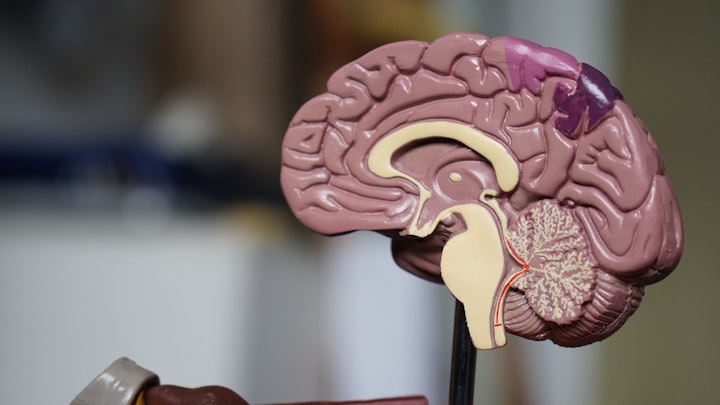How Low Carb Diets Like Keto Boosts Brain Health
Evidence-based

Low carb like the ketogenic diet has a lot of health benefits.
It's well documented that they can aid weight loss and even help manage diabetes. However, it's proven to be beneficial for certain brain disorders.
This article explores how low carb diets like keto affect the brain.
What are low carbohydrate and ketogenic diets?
Although two have a lot of overlap between low carb and ketogenic diets, there are also some important differences.
Low carb diet:
Carb intake can vary from 25–150 grams per day. Depending on your body weight and wellness goes
Protein is rarely restricted.
It's possible ketones may or may not rise to higher levels in the blood. Ketones replace carbs as an energy source for the brain.
Ketogenic diet:
Carb intake is limited to 50 grams or less per day.
Protein is restricted.
A major goal is to increase ketone levels in the blood.
With a standard low carb diet, your brain will still depend on glucose, the sugar found in your blood, for fuel. However, it's possible the brain may burn more ketones than on a regular diet.
On a ketogenic diet, the brain is predominantly fueled by ketones. The liver produces ketones when carb intake is low.
SUMMARY
Low carb and ketogenic diets have a lot in common. However, a ketogenic diet has fewer carbs will lead to a significant rise in ketone levels in the blood, which are important molecules.
The Myth of "130 Grams of Carbs"
there is probably a good chance to you heard your brain needs 130 grams of carbs per day to function properly. This is probably the most common myth about what a healthy carb intake is.
In fact, in a 2005 report by the National Academy of Medicine’s Food and Nutrition Board said:
“The lower limit of carbohydrates needed daily is apparently zero, as long as adequate amounts of protein and fat are consumed” (1) Trusted Source.
Although a zero-carb diet isn’t recommended because it eliminates many of the healthy foods you can eat on a daily basis, you can certainly fewer than 130 grams of carbs per day and maintain good brain function.
SUMMARY
It’s a common misconception that you need to eat 130 grams of carbs per day to provide the brain with energy.
Do low carb and ketogenic diets provide energy for the brain?
Low carb diets supply your brain with energy through processes called ketogenesis and gluconeogenesis.
Ketogenesis
Glucose is the most well-known fuel for the brain. Your brain opposed to your muscles, cannot use fat for fuel.
On the contrary, the brain can use ketones. When glucose and insulin levels are low, your liver kicks in and produces ketones from fatty acids.
Ketones are produced in limited quantities whenever you go for long periods of time without eating, an example being after a full night’s sleep.
The number of ketones the liver produces increases significantly during a fasted state or when carb intake falls below 50 grams per day (2Trusted Source).
When carbs are eliminated or reduced, ketones then provide up to 75% of the brain’s energy needs (3TrustedSource).
Gluconeogenesis
Although the brain can use ketones most of the time, there are portions that need glucose to function. On a very low carb diet, a portion of glucose can be supplied by the small number of carbs consumed.
The rest comes from a process called gluconeogenesis, which means "producing new glucose.” During this process, the liver creates glucose for the brain to use as fuel. The liver makes glucose by breaking down amino acids, the building blocks of protein (4Trusted Source).
The liver also makes glucose from glycerol. Glycerol is the fundamental molecule that links fatty acids together in triglycerides, simply put fat storage.
Thanks to gluconeogenesis, the parts of the brain that require glucose get a steady supply, even when your carb intake is very low.
SUMMARY
On a very low carb diet, ketones fuel up to 75% of the brain. The rest can be fueled by glucose created in the liver.
The Effects of Low carb/ketogenic diets on epilepsy
Epilepsy is a neurological disease characterized by seizures which are linked to overexcitement in brain cells.
It can cause uncontrolled jerking movements and in some cases loss of consciousness
Epilepsy is difficult to treat effectively. There are several kinds of seizures, and some people with epilepsy have multiple seizures every day.
Although there are many effective anti seizure medications, they are ineffective in managing seizures in about 30% of people. The type of epilepsy that is unresponsive to medication is called refractory epilepsy (5Trusted Source).
The ketogenic diet was created by Dr. Russell Wilder in the 1920s to treat epileptic children who were drug-resistant. His diet provides at least 90% of calories from fat and which has shown to replicate the beneficial effects of starvation on seizures (6TrustedSource).
The exact mechanics behind the ketogenic diet’s anti seizure effects are still unknown (6).
Low carb and ketogenic diets to treat epilepsy
There are four main carb-restricted diets that have been used to treat epilepsy. Here are their the macronutrient breakdowns:
Standard Ketogenic diet (KD): 2–4% of calories from carbs, 6–8% from protein, and 85–90% from fat (7Trusted Source).
Modified Atkins diet (MAD): 10% of calories from carbs with no restriction on protein in most cases. The diet begins by allowing 10 grams of carbs daily for children and 15 grams for adults, with slight increases if controlled (8TrustedSource).
Medium-chain triglyceride ketogenic diet (MCT diet): Initially 10% carbs, 20% protein, 60% medium-chain triglycerides, and 10% other fats (9Trusted Source).
Low glycemic index diet (LGID): 10–20% of calories come from carbs, around 20–30% from protein, and of the macronutrients from fat. Limits carb intake to those with a glycemic index (GI) under 50 (10TrustedSource).
The classic ketogenic diet in epilepsy
The classic ketogenic diet (KD) has been used in many epilepsy treatment facilities. A lot of studies have found improvement in over half of the participants (11Trusted Source, 12, 13Trusted Source, 14Trusted Source, 15Trusted Source).
In 2008 children treated with a ketogenic diet for 90 days had a 75% decrease in baseline seizures, on average (14Trusted Source).
In a 2009 study, around one-third of children who respond to the diet have a 90% or greater reduction in seizures (15Trusted Source).
In a 2020 study on refractory epilepsy, children who were on the Standard ketogenic diet for 6 months saw reduced seizure frequency by 66% (16Trusted Source).
Although the classic ketogenic diet can be very effective in treating seizures, it requires close supervision by a neurologist and dietitian.
Food choices are quite limited. As such, the diet can be hard to follow, particularly for older children and adults (17TrustedSource).
SUMMARY
Several types of low carb and ketogenic diets are effective at reducing seizures in both children and adults who are resistant to drug therapy.
The Brass Tax
According to the evidence, ketogenic diets can have powerful benefits on the brain.
The strongest evidence has to do with treating epileptic children who are drug-resistant
There’s also preliminary evidence that indicates the ketogenic diet may reduce symptoms of Alzheimer’s disease (Trusted Source),
Beyond brain health, there are also many studies that indicate low carb and ketogenic diets can aid in weight loss and help manage diabetes.
About the Creator
Edward Fay
For the last eight years, I've been an entrepreneur in financial services while pursuing my passion for fitness by competing in bodybuilding competitions






Comments
There are no comments for this story
Be the first to respond and start the conversation.